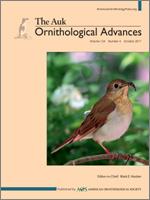Understanding intrinsic (physiological) and extrinsic (e.g., temperature) causes of variation in embryonic development time (incubation period) is important because they can have different impacts on individual quality. Robert Ricklefs and colleagues have argued that longer incubation periods result primarily from intrinsic physiological programs that increase individual quality and adult survival. They claim that incubation periods are largely invariant and that extrinsic factors like temperature have little impact. We have argued that adult survival may be a cause rather than a consequence of much of the variation in embryonic development time. A reduction in extrinsic sources of annual adult mortality (e.g., migration, predation, nonbreeding-season mortality) favors reduced parental effort during incubation to minimize costs to future reproduction and survival. Reduced parental effort, in turn, manifests as cooler average egg temperatures that yield longer incubation periods. Ricklefs and colleagues mischaracterized our hypothesis and deconstructed their own incorrect version, while also making some incorrect statements. We show that reevaluation of previous evidence provided by this group actually supports a role of egg temperature for the variation in incubation periods. We also summarize other observational and experimental evidence that incubation periods are not invariant and that egg temperature has a strong causal influence on variation within and among species. In fact, egg temperature explains ∼60% of the difference in incubation periods among species. The remaining ∼40% reflects intrinsic physiological programs and other factors, potentially providing intrinsic benefits. Ultimately, annual adult mortality explains substantial variation in parental effort and egg temperature, and the latter strongly explains variation in incubation periods. Both intrinsic programs and extrinsic temperature effects need to be considered in attempts to understand incubation strategies.
How to translate text using browser tools
13 December 2017
Adaptive influence of extrinsic and intrinsic factors on variation of incubation periods among tropical and temperate passerines
Thomas E. Martin,
Riccardo Ton,
Juan C. Oteyza
ACCESS THE FULL ARTICLE

The Auk
Vol. 135 • No. 1
January 2018
Vol. 135 • No. 1
January 2018
adult survival
egg temperature
parental effort
physiological trade-offs




